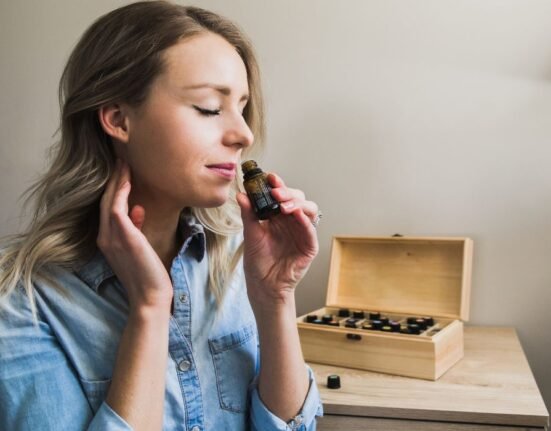Stress is evident in everything around us. For the constant deadlines, the endless errands and the weight of the responsibilities. With the constant stress, it is normal to feel tense, distracted or even distant from your own body — even when you’re trying to feel relaxed and connected. For many women, stress, anxiety, and low moods spill over into intimacy. It even impacts desire as it seems distant, and even getting aroused becomes more difficult, making sex feel like another item on a checklist. In fact, these changes can be easily spotted in the bedroom, long before they’re evident anywhere else.
So what’s really happening? And more importantly, what can help? This article explores the link between mental health and women’s intimacy. Understanding this connection is one of the first steps to solving the problem by improving female sexual health and confidence. But we won’t leave you to figure it out on your own; we’ll also cover some small, practical steps to help bring back both confidence and satisfaction.
Why Stress Changes Desire
The impact of stress can be seen in real, physical ways when it comes to sexual desire. One example is the production of higher levels of cortisol that the body produces when under pressure. Cortisol, also known as the stress hormone, has the ability to disrupt the balance of sex hormones such as estrogen and testosterone, both of which play a role in arousal and climaxing. This leads to lower sex drive, difficulty becoming aroused, or even having trouble reaching an orgasm.
Mental health conditions such as depression and anxiety can add on to these effects:
- Depression brings fatigue, low energy, and a loss of interest in activities that once felt enjoyable, including sex.
- Anxiety can make it hard to be present in the moment, leaving you distracted and tense instead of responsive.
In other cases, depression and anxiety can also be paired with distorted body images and a self consciousness that can overtake any desire that exists. For women who have past traumas, there’s another obstacle to consider as past experiences can shape how intimacy feels in the moment. Unfortunately, in these cases attempts at closeness may trigger distress or even make sexual activity feel overwhelming rather than pleasurable. This isn’t uncommon, but it needs a sensitive, supportive approach to healing.
Another aspect to consider is that the very medication that helps women deal with mental health struggles can get in the way when it comes to intimacy. Many antidepressants and other psychiatric medications can have side effects like reduced libido, vaginal dryness, or difficulty with orgasm.
(Side note: These side effects don’t happen to everyone, but they’re worth discussing with a healthcare provider if they interfere with intimacy.)
Unfortunately, stress doesn’t just leave a negative impact on the body, but can add strain to relationships. When there’s a lack of communication as a result of stress, or even feeling emotionally distant from a partner, it can lead to intimacy feeling uncomfortable and unnatural, adding unnecessary pressure. When that happens, it can lead to sex acting as a reminder of what feels off in a relationship, rather than a form of connection and intimacy.
What does intimacy mean to you?
Sometimes the obstacles standing in the way of intimacy, is what some women believe intimacy should look like and having specific expectations that aren’t met in reality. Sex doesn’t always need to mean penetration, or even follow a script of how things are “supposed” to go. In fact, when the pressure to perform or follow certain rules disappear, the excitement and satisfaction slowly start to creep back in.
Keep in mind that intimacy can be many things, such as touch, affection, laughing together, or simply lying on the couch without distractions. By giving yourself the permission to value these moments as intimacy, the connection will start to grow. This can start to reduce pressure and allow desire to return naturally.
In many cases, focusing on non-sexual closeness can help spark sexual interest later. Because it creates room for exploration, women feel more in control of pace and more connected to their own pleasure without having to do things they’re uncomfortable with. And that’s what makes intimacy sustainable, not just in the short term, but over the long run.
Everyday Strategies That Help
Instead of focusing on turning your entire life upside down, it’s possible to focus on the small things that can actually make a difference in how you feel about intimacy.
Reduce stress
Calming your body and mind by finding simple ways to reduce stress is the first way to make your body open for intimacy. This doesn’t need to be elaborate. It can be as simple as practicing breathing exercises, going on short walks, listening to music, or just allowing yourself to take in the quiet.
Support your body
It’s important to understand that there’s a strong connection between physical health and sexual health. These simple acts can make a huge difference:
- Exercise has the advantage of improving circulation, balancing hormones and even boosting energy levels. By doing so, it can also impact how you feel about your own body, boosting confidence in the process.
- Sleep has a more important role than we tend to give it. Getting a god night’s rest can reset hormone levels that influence sex drive. The simple act of adjusting your sleep schedule and getting 30-45 minutes more of rest during the week can not only reduce stress hormones but also improve desire.
- Nutrition also plays a huge role in sexual desire. By eating balanced meals and focusing on hydrating with two or three liters of water a day, energy, mood and wellbeing can be improved.
- Other tips such as pelvic floor exercise can enhance sexual sensation and control over time. You may even consider visiting a pelvic floor therapist to help.
Strengthen communication
While it is not easy to improve communication, attempting to be open with your partner about intimacy can go a long way. Directing your partner on what feels good, what doesn’t or even experimenting together and being clumsy, can bring you one step closer to understanding each other’s needs. If it feels too difficult to start on your own, a therapist can provide structure and tools to make these conversations easier.
Get to know your body
In order to allow someone to please you better, it helps to get to know your body a little better. Explore what feels good through masturbation, or learning more about sexual health. Find helpful podcasts or videos about sexual health, see what feels comfortable for you. Once you know what you like, it’s easier to communicate that to someone else. Plus, they’ll appreciate the tips!
Get help if you need it
If you’re struggling with past experiences or mental health issues that are impacting your intimacy or desire, remember that you don’t need to figure it out all by yourself. Seeking professional support such as Cognitive Behavioral Therapy (CBT) can help you understand your negative thought patterns and how to deal with them. In some cases, a healthcare provider can adjust treatment if medications are affecting sexual desire.
Talking About Intimacy Without Pressure
Many women find it difficult to bring up female sexual health issues or even express their feelings when it comes to low sex drive. Because they are afraid that doing so will be taken personally and hurt their partner’s feelings or even start an argument. However, staying silent can make the issue even worse. So, how do you navigate these difficult topics. One of the first things you should consider is having this conversation outside the bedroom and focusing on the way you phrase your concerns.
Instead of starting off with an attacking phrase that will lead to defensiveness, such as “You never listen” , consider opting for “I feel disconnected when we don’t talk about this” which invites openness. You can also opt for open discussions that allow you both to contribute, such as “What do you think would make intimacy more fun for us?” Which transforms the tone from blame to curiosity. If that feels overwhelming, consider involving a therapist or counsellor. A neutral third party can create structure and safety, so you don’t feel like you’re carrying the entire weight of the conversation alone.
The Bottom Line
While sexual health doesn’t have a one-size-fits-all solution, it is impacted by mental health. Managing stress and giving the body more rest it makes room for sexual desire to grow. Don’t forget that honest conversations, while difficult to have, can create a strong bond and connection. Once you start realising that Intimacy doesn’t have to look one way or meet a certain expectation, it opens up many possibilities and removes a lot of the pressure that comes with how intimacy is perceived. It can be about sex, but it can also be about closeness, comfort, and feeling safe with yourself and your partner. By taking care of your mind and body, intimacy will start to come naturally without the pressure, building confidence that lasts.













Leave feedback about this